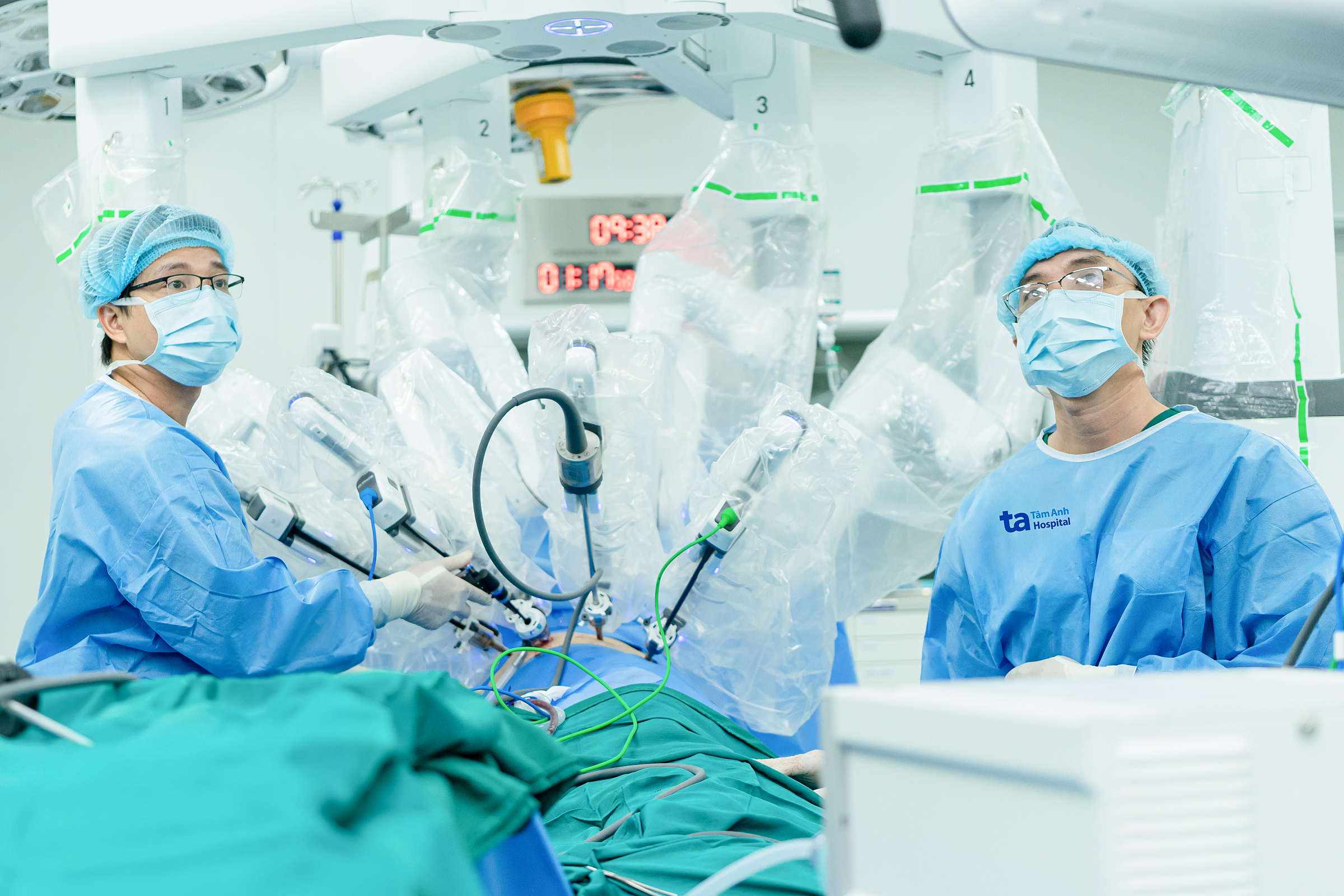Experiencing unusual hypertension, fatigue, shortness of breath, and worsening nausea and vomiting, 56-year-old Binh sought treatment at Tam Anh General Hospital in Ho Chi Minh City. Doctors discovered a 6x5 cm tumor on her left adrenal gland. The tumor was bleeding, beginning to necrotize, and adhering to surrounding tissues and nearby organs.
Associate Professor, Doctor Vu Le Chuyen, Director of the Center for Urology-Nephrology-Andrology, determined the case to be complex and recommended robotic surgery using the Da Vinci Xi system. The robot's camera, mounted on the third arm, provided enhanced visualization of the surgical field, enabling millimeter precision and access to the challenging and narrow area of the adrenal gland.
In just over an hour, the surgical team successfully removed the tumor without causing bleeding or damage to the surrounding tissues. The tumor was then analyzed to determine its nature.
Four days post-surgery, Binh recovered well, resumed a normal diet, and was discharged. If the tumor is benign, she will continue to be monitored. If malignant, further evaluation will be conducted over one to three months to determine if additional treatment is necessary in case of recurrence.
 |
Doctors operate the Da Vinci Xi robot to access the adrenal gland tumor from the abdomen. Photo: Hospital provided |
The adrenal glands are part of the endocrine system, producing hormones that regulate essential bodily functions, including metabolism, water and electrolyte balance, the immune system, blood pressure, stress response, and the development of sexual characteristics. According to Doctor Phan Duc Huu, adrenal gland tumors are uncommon but can be dangerous, even if benign, impacting a patient's health. While the exact cause is unknown, risk factors include family history, certain genetic syndromes, and previous adrenal tumor removal.
Doctor Huu recommends early recognition of potential symptoms, such as unexplained weight loss, hypertension, persistent fatigue, excessive hair, nail, or skin growth, hormonal changes, and abdominal or lower back pain, to prevent the progression of adrenal tumors to cancer.
He advises maintaining a healthy diet rich in antioxidants like berries, leafy greens, cruciferous vegetables, whole grains, and foods with high fiber and healthy fats. Regular exercise strengthens the body's resistance, and managing stress can protect hormonal balance. Regular health checkups every 6-12 months are crucial for early detection of risk factors.
Ha Thanh
*The patient's name has been changed.
| Readers can submit questions about kidney disease here for doctors to answer. |












